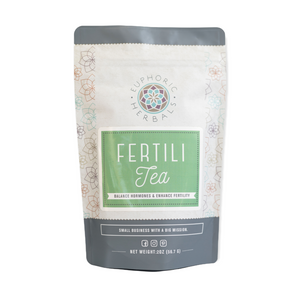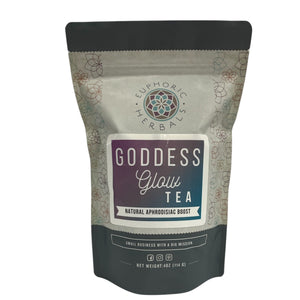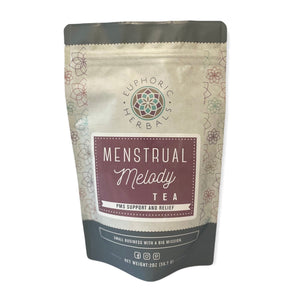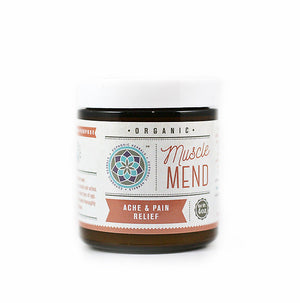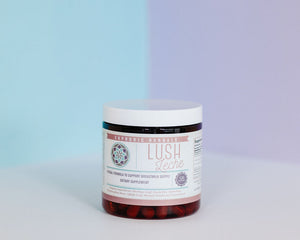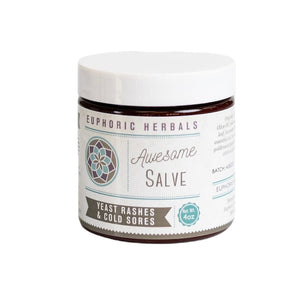For most people, fall and winter bring colder temperatures and some dreary weather. You might find yourself staying indoors more, fending off the chill, and maybe feeling more sluggish than usual.
This means that it's the perfect time of year for herbs and spices that are warming. In fact, you'll find many of them in traditional holiday recipes, and you might find yourself craving spicier flavors as the weather gets colder.
Of course, herbs and spices also bring health-boosting benefits with them and can be a key part of wellness during cold and flu season. Here's a look at what they can do and the top choices for the coldest months (plus a homemade chai recipe).
General Benefits of Warming Herbs & Spices
Each herb has its own specific properties and benefits, but warming herbs do tend to share some common characteristics.
But before we get into that, there's another question to be answered: What are warming herbs?
In general, one of many classifications for herbs is whether they have a warming or cooling effect. Some, like hibiscus and mints, tend to cool the body, while others warm it. Still others are more on the neutral side and don't have a significant heating or cooling effect.
When it comes to warming herbs, there are definitely degrees of warmth. Some are hot and you know right away what they do (think cayenne), while others are only moderately warming.
Most warming herbs and spices stimulate circulation, which is generally good during cooler weather, since you may be doing more sitting and need to get your blood moving.
Many of them also having warming effects on digestion, helping it to 'get moving' and work more effectively. You'll notice that a large number have immune-enhancing effects as well and some help with congestion, coughing, etc.
Of course, warming herbs also do exactly what their name says- impart some warmth to you on chilly days!
Top Warming Herbs and Spice
Cinnamon

Cinnamon may just be the most-loved spice of fall and the holiday season. You recognize its warming quality immediately when you taste it, and it can be used to flavor all kinds of foods and drinks.
Cinnamon improves circulation, stimulates a sluggish digestion, and gives a boost to your immune system. It also supports heart health and contains plenty of antioxidants that help you keep feeling younger for longer.
Sprinkle cinnamon powder on your food to add a little spice or steep some cinnamon chips in hot water to make a warm and cozy tea.
Turmeric
Turmeric is another popular warming spice. You can tell it has warmth from its bright orange color. It has quickly picked up new fans as word of its anti-inflammatory effects got out.
Besides reducing chronic inflammation, turmeric is also immune-enhancing and may help relieve certain types of pain. It also promotes liver, digestive, and skin health and is good for your heart as well.
Use turmeric powder when you cook to warm up recipes, or enjoy it sweet in Golden Milk or Turmeric Spice Tea.
Ginger
There's no doubt that ginger root is a warming herb with the spicy kick it has. It's closely related to turmeric and shares some similar benefits, although it has much more heat to it.
Well-known for calming nausea and indigestion, ginger can also help ease cramps associated with PMS and boost immune function. It promotes circulation as well- something you'll notice right away if you eat too much of it.
For a sweet treat to warm you and fight indigestion, try crystallized ginger. Or use ginger root to make tea (add lemon, honey, and cinnamon if desired).
Cloves

Cloves are a familiar holiday spice that have a warm and inviting aroma. They are a classic pairing with cinnamon and also have aromatherapy benefits.
It may surprise you to learn that cloves are at the top of the spice list for antioxidant content with over 60 times the amount found in blueberries! They also have antimicrobial and immune-boosting properties and aid digestion.
Add one or two cloves in with your favorite tea to steep, or diffuse clove essential oil for a comforting, warming scent.
Thyme
Thyme is often thought of as a common culinary herb, but it's a treasured part of many herbalists' inventories. Not only does it have a warming nature, it also proves useful for many common complaints that come up in the colder months.
Thyme has long been used to ease coughing and a sore throat, relieve congestion, and support the respiratory system. It also supports immunity and even has mood-boosting effects.
Try a tea made with dried thyme and honey for a scratchy throat, or diffuse a little thyme essential oil and breathe deeply.
Cardamom
Cardamom isn't as popular as cinnamon and cloves, but it shares some similar properties and has been used since ancient times. Cardamom is actually closely related to ginger and turmeric, so you can see where its warming power comes from.
This warming spices aids digestion, relieves stress, and even helps to freshen your breath. The freshest version to use is cardamom pods, which can be crushed and added to recipes.
Steep cardamom pods alone or with cinnamon and/or cloves for a warming, mood-lifting drink. Or use the powder in baked goods.
Oregano

Oregano is a pungent and spicy herb that definitely brings some warmth to chilly months. It has powerful antibacterial properties and provides some extra immune support- just like so many other herbs.
Oregano is great to use if you happen to get sick. It can help to clear your chest- especially if rubbed on as an oil or breathed in as an herbal steam- and is soothing for sore throats. Plus, it tastes really good!
Use dried oregano to make a warming, soothing tea. For a more potent remedy, try oil of oregano capsules as needed.
Garlic
It would be impossible to talk about warming herbs without mentioning garlic. Garlic is yet another immune-booster and packs some serious heat (as you probably know).
Just adding some to your food can bring warmth to your body, and it also helps to kickstart a sluggish digestion. Garlic is filled with antioxidants as well that support heart and brain health.
Enjoy garlic raw if you like it that way for maximum warmth or chop/crush and gently cook it. You can also try garlic extract when you need a boost.
Orange Peel
Orange peel has a more subtle warming quality. It won't knock you out with heat, but it does add a lot of warm, citrus flavor with just a tiny amount of the peel.
Traditionally, orange peels have been used to aid digestion and support liver health. They also have a stress-relieving quality (like all citrus does) and contain many more nutrients and enzymes than the fruit.
Try this Orange Spice tea for a fruity and spicy beverage or this Cranberry Orange tea for something bright and refreshing.
Cayenne

There's absolutely no doubt that cayenne is a warming herb. Taken internally, it stimulates digestion, promotes circulation, and may even protect the heart.
You can also use cayenne topically in a salve, cream, etc. It has natural pain-relieving properties and also stimulates circulation when massaged in, making it helpful for stiff or "cold" muscles and joints.
Add a little cayenne powder to food or try it in a fire cider recipe. You can also use a muscle rub containing cayenne. Just don't overdo it with this very hot spice!
Nutmeg
Nutmeg is frequently used alongside other warming spices like cinnamon, cardamom, and cloves. It supports digestion and can help relieve gas, all while giving a sweet, spicy flavor to food.
Like other spices, nutmeg is high in antioxidants. It also has antibacterial and anti-inflammatory properties and has traditionally been considered an aphrodisiac.
Nutmeg is a bit strong on its own but enjoyable in a blend- like this Maple Bourbon Nutmeg tea.
Black Pepper
Black pepper provides warmth without being quite as spicy as hot peppers like cayenne. (In case you're wondering, black pepper comes from peppercorns and is not actually a chili pepper.)
It's rich in antioxidants, supports digestion, and even helps other nutrients- like the curcumin in turmeric- be absorbed more effectively. Black pepper can also boost your mood.
Grind black pepper fresh from peppercorns for the most benefit. You can also try diffusing black pepper essential oil in a mood-lifting blend.
Warming Chai Tea Recipe
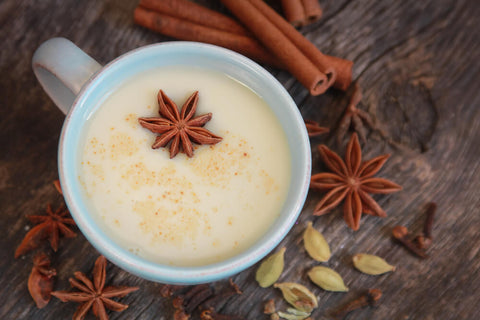
It's very easy to make your own herbal chai tea at home, and it's the perfect warming drink for fall and winter. Here's a basic recipe, but feel free to make it your own:
- 1 cinnamon stick
- 1 teaspoon grated or chopped ginger root
- 3-4 cardamom pods, crushed
- 3-4 cloves
- A few grinds of black pepper
- A few coriander seeds, crushed (optional)
- Loose black tea (optional)
- Add all of your spices (not the black tea) to a small saucepan and pour in 8-10 ounces of water. Simmer for 15-20 minutes.
- Take the saucepan off the heat and add your desired amount of black tea, if using. Cover the pan and steep about 5 minutes.
- Strain out the spices and black tea. Sweeten your chai if you want, and feel free to add a little milk. Enjoy!
A Word of Caution
Warming herbs and spices are truly some of the best (and tastiest) for the fall and winter months. However, it is possible to overdo it with herbs that bring heat.
If you use too many warming spices without anything to balance them, they can have a drying effect on your body and possibly aggravate an inflamed digestion.
If you think about it, spices like cinnamon are often paired with something creamy to add some moisture to the recipe.
Feel free to add milk or a non-dairy option like oat milk to your concoctions made with warming herbs. Or make use of moisture-adding herbs like marshmallow root and slippery elm.
This way, you'll be able to fully enjoy these potent herbs and spices!
Disclaimer: This post is for informational purposes only. It does not constitute medical advice and should not be substituted for medical advice. Please consult your health care provider, herbalist, midwife, or naturopathic physician before taking herbs, supplements, etc. Here's the link to our full disclaimer.






















































